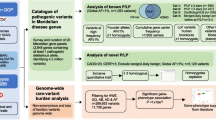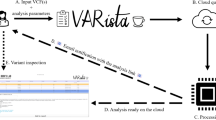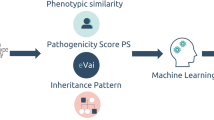Abstract
Genome wide association studies have identified a number of common genetic variants - single nucleotide polymorphisms (SNPs) – that combine to increase breast cancer risk. SNP profiling may enhance the accuracy of risk assessment and provides a personalized risk estimate. SNP testing for breast cancer risks may supplement other genetic tests in the future, however, before it can be implemented in the clinic we need to know how it will be perceived and received. Semi-structured qualitative interviews were conducted with 39 women who had previously had a breast cancer diagnosis and undergone BRCA1/2 testing, participated in the Variants in Practice (ViP) study and received personalized risk (SNP) profiles. Interviews explored their understanding and experiences of receiving this SNP information. Women reported feeling positive about receiving their personalized risk profile, because it: provided an explanation for their previous diagnosis of cancer, vindicated previous risk management decisions and clarified their own and other family members’ risks. A small group was initially shocked to learn of the increased risk of a second primary breast cancer. This study suggests that the provision of personalized risk information about breast cancer generated by SNP profiling is understood and well received. However, a model of genetic counseling that incorporates monogenic and polygenic genetic information will need to be developed prior to clinical implementation.

Similar content being viewed by others
References
Ahmed, S., Thomas, G., Ghoussaini, M., Healey, C. S., Humphreys, M. K., Platte, R., et al. (2009). Newly discovered breast cancer susceptibility loci on 3p24 and 17q23. 2. Nature Genetics, 41(5), 585–590.
Anderson, A. E., Flores, K. G., Boonyasiriwat, W., Gammon, A., Kohlmann, W., Birmingham, W. C., et al. (2014). Interest and informational preferences regarding genomic testing for modest increases in colorectal cancer risk. Public Health Genomics, 17(1), 48–60. https://doi.org/10.1159/000356567.
Antoniou, A. C., Wang, X., Fredericksen, Z. S., McGuffog, L., Tarrell, R., Sinilnikova, O. M., et al. (2010). A locus on 19p13 modifies risk of breast cancer in BRCA1 mutation carriers and is associated with hormone receptor-negative breast cancer in the general population. Nature Genetics, 42(10), 885–892.
Austin, J. C., & Peay, H. L. (2006). Applications and limitations of empiric data in provision of recurrence risks for schizophrenia: a practical review for healthcare professionals providing clinical psychiatric genetics consultations. Clinical Genetics, 70(3), 177–187. https://doi.org/10.1111/j.1399-0004.2006.00658.x.
Chapman, E., & Bilton, D. (2004). Patients’ knowledge of cystic fibrosis: Genetic determinism and implications for treatment. Journal of Genetic Counseling, 13(5), 369–385. https://doi.org/10.1023/B:JOGC.0000044199.38694.6c.
Chowdhury, S., Dent, T., Pashayan, N., Hall, A., Lyratzopoulos, G., Hallowell, N., et al. (2013a). Incorporating genomics into breast and prostate cancer screening: Assessing the implications. Genetics in Medicine, 15(6), 423–432. https://doi.org/10.1038/gim.2012.167.
Chowdhury, S., Dent, T., Pashayan, N., Hall, A., Lyratzopoulos, G., Hallowell, N., et al. (2013b). Incorporating genomics into breast and prostate cancer screening: Assessing the implications. Genetics in Medicine: Official Journal of the American College of Medical Genetics, 15(6), 423–432. https://doi.org/10.1038/gim.2012.167.
Claes, E., Evers-Kiebooms, G., Boogaerts, A., Decruyenaere, M., Denayer, L., & Legius, E. (2004). Diagnostic genetic testing for hereditary breast and ovarian cancer in cancer patients: women’s looking back on the pre-test period and a psychological evaluation. Genetic Testing, 8(1), 13–21.
Collins, R. E., Wright, A. J., & Marteau, T. M. (2011). Impact of communicating personalized genetic risk information on perceived control over the risk: A systematic review. Genetics in Medicine, 13(4), 273–277. https://doi.org/10.1097/GIM.0b013e3181f710ca.
Cox, A., Dunning, A. M., Garcia-Closas, M., Balasubramanian, S., Reed, M. W., Pooley, K. A., et al. (2007). A common coding variant in CASP8 is associated with breast cancer risk. Nature Genetics, 39(3), 352–358.
Dent, T., Jbilou, J., Rafi, I., Segnan, N., Tornberg, S., Chowdhury, S., et al. (2013). Stratified cancer screening: The practicalities of implementation. Public Health Genomics, 16(3), 94–99. https://doi.org/10.1159/000345941.
Easton, D. F., Pooley, K. A., Dunning, A. M., Pharoah, P. D., Thompson, D., Ballinger, D. G., et al. (2007). Genome-wide association study identifies novel breast cancer susceptibility loci. Nature, 447(7148), 1087–1093.
Egglestone, C., Morris, A., & O'Brien, A. (2013). Effect of direct-to-consumer genetic tests on health behaviour and anxiety: a survey of consumers and potential consumers. Journal of Genetic Counseling, 22(5), 565–575. https://doi.org/10.1007/s10897-013-9582-6.
Fisher, C. L., Maloney, E., Glogowski, E., Hurley, K., Edgerson, S., Lichtenthal, W. G., et al. (2014). Talking about familial breast cancer risk: Topics and strategies to enhance mother-daughter interactions. Qualitative Health Research, 24(4), 517–535. https://doi.org/10.1177/1049732314524638.
Fletcher, O., Johnson, N., Orr, N., Hosking, F. J., Gibson, L. J., Walker, K., et al. (2011). Novel breast cancer susceptibility locus at 9q31. 2: Results of a genome-wide association study. Journal of the National Cancer Institute, 103(5), 425–435.
Ghoussaini, M., Fletcher, O., Michailidou, K., Turnbull, C., Schmidt, M. K., Dicks, E., et al. (2012). Genome-wide association analysis identifies three new breast cancer susceptibility loci. Nature Genetics, 44(3), 312–318.
Goldstein, D. B. (2009). Common genetic variation and human traits. The New England Journal of Medicine, 360(17), 1696–1698. https://doi.org/10.1056/NEJMp0806284.
Hall, A. E., Chowdhury, S., Hallowell, N., Pashayan, N., Dent, T., Pharoah, P., & Burton, H. (2014). Implementing risk-stratified screening for common cancers: A review of potential ethical, legal and social issues. Journal of Public Health (Oxford, England), 36(2), 285–291. https://doi.org/10.1093/pubmed/fdt078.
Hallowell, N., Arden-Jones, A., Eeles, R., Foster, C., Lucassen, A., Moynihan, C., & Watson, M. (2006). Guilt, blame and responsibility: men's understanding of their role in the transmission of BRCA1/2 mutations within their family. Sociology of Health & Illness, 28(7), 969–988. https://doi.org/10.1111/j.1467-9566.2006.00515.x.
Howe, R., Miron-Shatz, T., Hanoch, Y., Omer, Z. B., O'Donoghue, C., & Ozanne, E. M. (2014). Personalized medicine through SNP testing for breast cancer Risk: Clinical Implementation. Journal of Genetic Counseling, 24(5), 744–751. https://doi.org/10.1007/s10897-014-9803-7.
Leventhal, K. G., Tuong, W., Peshkin, B. N., Salehizadeh, Y., Fishman, M. B., Eggly, S., et al. (2013). "is it really worth it to get tested?": Primary care patients' impressions of predictive SNP testing for colon cancer. Journal of Genetic Counseling, 22(1), 138–151. https://doi.org/10.1007/s10897-012-9530-x.
Lodder, L., Frets, P. G., Trijsburg, R. W., Meijers-Heijboer, E. J., Klijn, J. G., Duivenvoorden, H. J., et al. (2001). Psychological impact of receiving a BRCA1/BRCA2 test result. American Journal of Medical Genetics, 98(1), 15–24.
Mavaddat, N., Pharoah, P. D., Michailidou, K., Tyrer, J., Brook, M. N., Bolla, M. K., et al. (2015). Prediction of breast cancer risk based on profiling with common genetic variants. Journal of the National Cancer Institute, 107(5). https://doi.org/10.1093/jnci/djv036.
McClure, J. B. (2002). Are biomarkers useful treatment aids for promoting health behavior change? An empirical review. American Journal of Preventive Medicine, 22(3), 200–207.
Michailidou, K., Hall, P., Gonzalez-Neira, A., Ghoussaini, M., Dennis, J., Milne, R. L., et al. (2013). Large-scale genotyping identifies 41 new loci associated with breast cancer risk. Nature Genetics, 45(4), 353–361, 361e351-352. https://doi.org/10.1038/ng.2563.
Michailidou, K., Beesley, J., Lindstrom, S., Canisius, S., Dennis, J., Lush, M. J., et al. (2015). Genome-wide association analysis of more than 120,000 individuals identifies 15 new susceptibility loci for breast cancer. Nature Genetics, 47(4), 373–380. https://doi.org/10.1038/ng.3242.
Offit, K. (2008). Genomic profiles for disease risk: Predictive or premature? JAMA, 299(11), 1353–1355. https://doi.org/10.1001/jama.299.11.1353.
Sawyer, S., Mitchell, G., McKinley, J., Chenevix-Trench, G., Beesley, J., Chen, X. Q., et al. (2012). A role for common genomic variants in the assessment of familial breast cancer. Journal of Clinical Oncology, 30(35), 4330–4336.
Sehrawat, B., Sridharan, M., Ghosh, S., Robson, P., Cass, C. E., Mackey, J. R., et al. (2011). Potential novel candidate polymorphisms identified in genome-wide association study for breast cancer susceptibility. Human Genetics, 130(4), 529–537.
Stacey, S. N., Manolescu, A., Sulem, P., Thorlacius, S., Gudjonsson, S. A., Jonsson, G. F., et al. (2008). Common variants on chromosome 5p12 confer susceptibility to estrogen receptor–positive breast cancer. Nature Genetics, 40(6), 703–706.
Strauss, A., & Corbin, J. (1990). Basics of qualitative research: Grounded theory procedures and techniques. Newbury Park: Sage Publications.
Taber, J. M., Aspinwall, L. G., Stump, T. K., Kohlmann, W., Champine, M., & Leachman, S. A. (2015). Genetic test reporting enhances understanding of risk information and acceptance of prevention recommendations compared to family history-based counseling alone. Journal of Behavioral Medicine, 38(5), 740–753. https://doi.org/10.1007/s10865-015-9648-z.
van Oostrom, I., Meijers-Heijboer, H., Duivenvoorden, H. J., Brocker-Vriends, A. H., van Asperen, C. J., Sijmons, R. H., et al. (2007). A prospective study of the impact of genetic susceptibility testing for BRCA1/2 or HNPCC on family relationships. Psychooncology, 16(4), 320–328. https://doi.org/10.1002/pon.1062.
van Roosmalen, M. S., Stalmeier, P. F., Verhoef, L. C., Hoekstra-Weebers, J. E., Oosterwijk, J. C., Hoogerbrugge, N., et al. (2004). Impact of BRCA1/2 testing and disclosure of a positive test result on women affected and unaffected with breast or ovarian cancer. American Journal of Medical Genetics. Part A, 124A(4), 346–355. https://doi.org/10.1002/ajmg.a.20374.
Waxler, J. L., O'Brien, K. E., Delahanty, L. M., Meigs, J. B., Florez, J. C., Park, E. R., et al. (2012). Genetic counseling as a tool for type 2 diabetes prevention: A genetic counseling framework for common polygenetic disorders. Journal of Genetic Counseling, 21(5), 684–691. https://doi.org/10.1007/s10897-012-9486-x.
Acknowledgements
We thank all the women who participated in the ViP study, particularly those who took part in the psychosocial study.
This work was supported by the Australian National Health and Medical Research Council (2012-2014, APP1023698). A Cancer Council Victoria postgraduate scholarship supports Miss Sarah D Sawyer.
Author information
Authors and Affiliations
Corresponding author
Ethics declarations
Conflict of Interest
Mary-Anne Young declares that she has no conflict of interest.
Laura Elenor Forrest declares that she has no conflict of interest.
Victoria-Mae Rasmussen declares that she has no conflict of interest.
Paul James declares that he has no conflict of interest.
Gillian Mitchell declares that she has no conflict of interest.
Sarah Dilys Sawyer declares that she has no conflict of interest.
Katrina Reeve declares that she has no conflict of interest.
Nina Hallowell declares that she has no conflict of interest.
Human Studies and Informed Consent
All procedures followed were in accordance with the ethical standards of the responsible committee on human experimentation (institutional and national) and with the Helsinki Declaration of 1975, as revised in 2000 (5). Informed consent was obtained from all patients for being included in the study.
Animal Studies
No animal studies were carried out by the authors for this article.
Electronic Supplementary Material
ESM 1
(DOC 30 kb)
Rights and permissions
About this article
Cite this article
Young, MA., Forrest, L.E., Rasmussen, VM. et al. Making Sense of SNPs: Women’s Understanding and Experiences of Receiving a Personalized Profile of Their Breast Cancer Risks. J Genet Counsel 27, 702–708 (2018). https://doi.org/10.1007/s10897-017-0162-z
Received:
Accepted:
Published:
Issue Date:
DOI: https://doi.org/10.1007/s10897-017-0162-z




